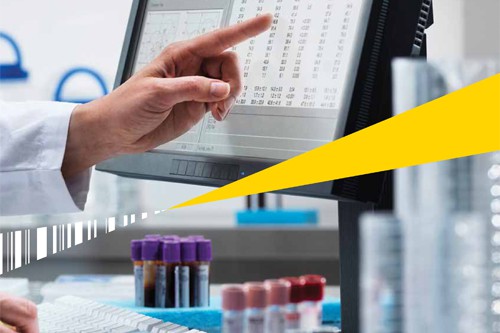
An innovative and booming biotech sector was one of the drivers behind the return in 2013 of higher value merger and acquisition deals, according to a new report.
Analysis of the life sciences M&A landscape by legal firm Squire Sanders found $27.3bn in deal activity was generated from only 62 deals, boosted by substantial biotech agreements.
Across the life sciences sector there was a return to higher value deals, with 455 transactions announced in the first half of 2013 reaching a total aggregate value of $78 billion – up 6 per cent on the first half of 2012 – and this trend carried over into the biotech space.
Discounting the split of Abbott, whose research-based pharma business became AbbVie in January, and Pfizer’s spinning-off its animal health unit into Zoetis the following month, two of the three biggest deals between the fourth quarter of 2012 and third quarter of 2013 involved biotech companies.
Leading the pack was Thermo Fisher with its $15bn acquisition of genetic sequencing firm Life Technologies in a deal aimed at tapping into opportunities to support the convergence of life sciences tools and diagnostics.
The move marked a return of the $10bn-plus strategic acquisition, a category that has seen a lull in recent years as the industry has taken stock of a drastically altered operating environment, Squire Sanders said.
The ‘Global M&A Series: Life Sciences & Healthcare 2013’ report also highlighted Perrigo’s $8.6bn purchase of Elan, a July deal that brought to an end an ill-natured takeover battle which had seen Elan resort to legal action to fend off hostile bids from US company Royalty Pharma.
Overall there was a trend towards higher value deals for biotech firms, where the premium for innovation is high and markets are awash with eager suitors, both financial and strategic, and the Q4 2012 – Q3 2013 period saw $27.3bn worth of biotech deals struck.
Maureen Bennett, co-chair of Squire Sanders’ Life Sciences & Healthcare Industry Group, said: “In the pharmaceuticals section, as firms attempt to replenish their pipelines, they have looked to acquire smaller businesses in more niche areas, such as rare diseases, that are more certain to ensure profits, albeit smaller ones.
“We are also seeing large pharmaceuticals firms providing early-stage financing for new drug companies. Through doing so, they are building relationships early and are well positioned to make an acquisition further down the line.”
In the US companies have continued to focus on restructuring business lines, and investing in drugs still undergoing clinical trials or early stage drugs, as well as rights to commercialise drugs in new markets, she added.
The US biotech sector also saw inflated aggregate deal values last year, though the lion’s share of this came from the Thermo Fisher-Life Technologies deal, which highlighted the opportunities in genetic sequencing thanks to the move towards more personalised medicine.
However, the high premiums placed on the area were ultimately behind the failure of Roche’s 2012 $6.8bn bid for Illumina. The deal, Squire Sanders said, “evidences the high premiums placed on assets in personalised medicine – Illumina demanded a higher price from Roche, causing the deal to collapse”. It certainly made the company, Roche’s chairman Franz Humer told German newspaper SonntagsZeitung last year, a ‘nice to have’ rather than a ‘must have’ for Roche’s diagnostics division.
Buying innovation
Clues for what are pharma’s ‘must have’ areas can be found in GlaxoSmithKline’s $3.6bn July 2012 takeover of Human Genome Sciences, which gave it full access to lupus treatment Benlysta (belimumab) and the late-stage type 2 diabetes candidate albiglutide.
For Squire Sanders “the deal perfectly encapsulates the overarching trend in the pharmaceuticals industry: major players are becoming more innovative by acquiring smaller companies developing promising pipeline therapies”.
It’s a trend that can also be seen in the actions of AstraZeneca, one of the more acquisitive companies of 2013. Its biotech haul included AlphaCore Pharma, a US company developing a recombinant human lecithin-cholesterol acyltransferase (LCAT) enzyme with potential in cardiovascular disease and respiratory specialist Pearl Therapeutics, which has a promising portfolio of respiratory products.
AZ’s 2013 deal-making spree also saw it acquire Amplimmune, a Maryland, US-based biotech with a number of early-stage cancer projects, and UK firm Spirogen, which develops antibody-drug conjugates. Financial details of the AlphaCore deal were not released, but AZ’s acquisitions of Pearl, Amplimmune and Spirogen could cost it $1.85bn – clearly a price the company judges worthwhile to rejuvenate its flagging pipeline.





